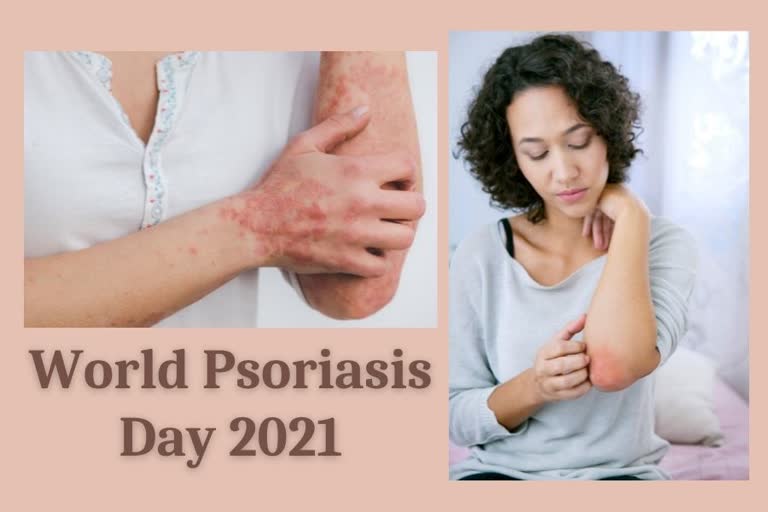According to the World Psoriasis Day consortium, 125 million people worldwide, which is 2 to 3 percent of the total population, have psoriasis. Therefore, to acknowledge the people suffering from it and to spread awareness about the condition, every year on 29th October, World Psoriasis Day is celebrated.
Psoriasis occurs when one's immune system is overactive and attacks healthy skin tissue, causing inflammation and speeding up skin cell growth. As a result, the skin becomes itchy, painful and scaly, with inflamed red plaques (patches) or silvery scales. These can appear across the body, often on the scalp, knees, back or elbows. Still, many believe these patches cannot hurt them.
Shrichand G. Parasramani, Dermatologist, Anisha Clinic, Mumbai said, "Psoriasis is an autoimmune disease which can be controlled but has no cure. It can go into remission. Patients and their families have several misconceptions of the disease, such as it is infectious in nature and they have to live with it lifelong. It affects the patient's quality of life to a large extent which increases his level of stress.
Many patients are drawn towards alternative medicine such as Ayurveda or homeopathy due to the failure of conventional therapy and at times high cost of treatment. This leads to irregularity in treatment, resulting in a flare-up of the disease or treatment failure. However, patients must understand the importance of addressing the disease so as to avoid the progression of psoriasis and its underlying complications. They must be told that with newer treatment options patients can lead an almost near-normal life."
Here Are 4 Ways Psoriasis Can Worsen If Not Managed
Inflammation:
Psoriasis is a chronic autoimmune disease that causes inflammation. What's especially important to note is that even mild psoriasis can be a sign of significant inflammation in the body. This inflammation, in turn, can contribute to other associated health conditions. Given that dermatologists are the key medical experts responsible for treating psoriasis, it is important to consult one to understand the condition and suitable and advanced treatment options such as biologics
Increased risk of health complications:
People living with psoriasis are at a higher risk of developing associated conditions or comorbidities. The most common of these is psoriatic arthritis, which affects 30 percent of psoriasis patients. It is a chronic and inflammatory disease of the joints, resulting in stiffness, pain, throbbing, swelling and tenderness in joints. If this is not treated, long-term joint damage can result.
People with psoriasis, particularly in more severe cases, are also more likely to have other inflammatory conditions, including heart attack, stroke, type-2 diabetes, and inflammatory bowel disease. Other related health issues can also include obesity, chronic obstructive pulmonary disease, metabolic syndrome, hypertension, kidney or liver disease uveitis, and sleep apnea.
Treatment to prevent flare-ups:
If unmanaged, psoriasis can lead to plaques and scales that continue to build and spread. Over time, these can become quite painful, causing severe itching. Without adequate treatment to prevent flare-ups, these can increase in severity and frequency. This can even happen to patients who begin medication but suddenly discontinue adhering to their recommended prescription.
It's important to remember that psoriasis can be treated. By adopting advanced therapies, such as biologics, the disease, as well as flare-ups, can be effectively managed.
